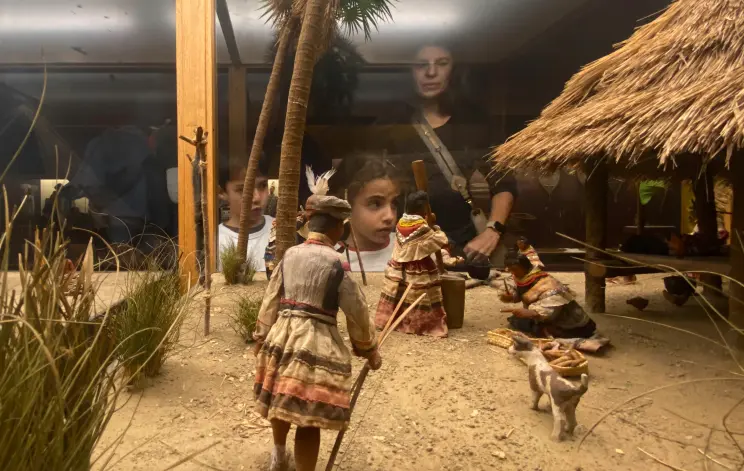
by Bruce Gilley
The American Museum of Natural History’s decision to close its two major halls exhibiting Native American objects follows new Biden regulations that seek to speed up the implementation of a 1990 law on the display of artifacts.
Museums nationwide have been under increasingly shrill and uncompromising native campaigns laced with charges of racism, white supremacy, colonialism and all the rest.
Supporters say this is a kind of reparation and guilt-atonement for settler-colonial crimes. Critics worry about the disappearance of science and knowledge.
But both supporters and critics assume the key issue here is the proper handling and presentation of native American culture. It is not.
Rather, the AMNH closure is the latest example of how a complaint has become the main “culture” of American Indian tribes and how that culture is a means to the greater end of keeping these increasingly fractious political movements together.
Until the 1970s, the main issue for Native American groups was that their culture was not displayed enough, that archaeologists did not conduct enough work on native sites and remains, that their cultures were not celebrated at mainstream American museums.
Back then, native communities were more or less coherent and the stakes of holding native membership small.
Neither is true today. In 1970, the US census counted about 800,000 people who self-identified as Native Americans (native membership has never been based on actual DNA evidence but on family trees decided on by murky and easily corrupted tribal procedures). By 2020, that figure had grown to more than 2 million, while another 4 million claimed partial native ancestry.
Whereas in 1970, 28% of natives lived on reservations, today that figure is just 13%.
At the same time, the stakes in being included as a tribal member have become immense. In 2020, for instance, a long campaign by tribes in Oklahoma persuaded the Supreme Court to declare most of eastern Oklahoma tribal land not subject to state laws.
Those kind of windfalls make solidarity within and among tribes critical.
What appears as a native campaign for cultural integrity is better seen as a means to build solidarity within groups of people claiming tribal membership. Native cultural advocacy over graves, museums, residential school histories or even the use of the moon are not an end.
They are a means to an end, in particular a way to build group solidarity.
History and culture wars, such as the one AMNA is caught up in, are not an unfortunate disagreement but an intentional means to hold native groups together.
First published in the New York Post.
Bruce Gilley is professor of political science and public policy at Portland State University in Oregon. His latest book is “The Case for Colonialism.”
- Like
- Digg
- Del
- Tumblr
- VKontakte
- Buffer
- Love This
- Odnoklassniki
- Meneame
- Blogger
- Amazon
- Yahoo Mail
- Gmail
- AOL
- Newsvine
- HackerNews
- Evernote
- MySpace
- Mail.ru
- Viadeo
- Line
- Comments
- Yummly
- SMS
- Viber
- Telegram
- Subscribe
- Skype
- Facebook Messenger
- Kakao
- LiveJournal
- Yammer
- Edgar
- Fintel
- Mix
- Instapaper
- Copy Link







4 Responses
INteresting.
Fill the display cases with ‘authentic’ scenes of broken treaties and peaceful sustained agreements. Invite tribe representatives to assist in scene detail.
Include with the exhibit a 7 ft tall AI replica of Jim Thorpe, humane superb native American athlete.
He will be able to explain/discuss each of the scenes’ context, significance. His, It’s replies based on native and non-native leaders’, scholars’ speeches, writings.
Attributions to all of ‘ChatGPT’ Jim’s comments will be given.
A list of contrarian opinions wll be available for discussion with JT.
** Visitors may record conversations at no charge
Indian Reservations are totally bad for Indians. If I leave where I live by a motor vehicle I will run into a “Res” in every direction very soon – North, South, East or West. Reservations have:
High unemployment – 10%
Low Educational levels – only 37% have a High School Diploma vs 91% for the nation
High drug use – Meth and Fentanyl
Life expectancy 15 years under the state average for other groups: whites, asians etc.
The problem is that if you leave the Res you are pretty much ostracized. If you don’t you will amount to nothing. The “leaders” on the Res are corrupt garbage.